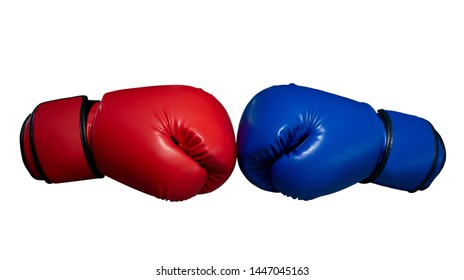Reasons behind Hand Shaking after Fight
Nearly every boxer has felt it before: You've gone hard in the gym and are left with aching muscles, but in a good way. You feel strong, indestructible and ready to take on the most threatening of opponents. But then it starts: your hands begin to shake, and suddenly, you don’t feel so powerful anymore. Involuntary muscle twitches and shakes are a well-known phenomenon in the boxing world. They usually come out after a workout. If you’re experiencing these, don’t let them bring you down: there are some easy lifestyle changes that can help end tremors and make you healthier along the way.
Why are my hands shaking after workouts?
Post workout shakes have to do with how muscles contract in order to create movement. Each set of muscles is regulated by a motor neuron in the spine. There are several reasons why you could get tremors in your hands, but experiencing them right after exercise indicates that the nerve and muscle link isn't functioning to the best of its ability. Your hands are not the only body part that might experience tremors; every muscle that you use can get the shakes. But what brings about muscular trembling? Trembling is just the symptom; the source might be:
- Workout Intensity
The day your hands shake, take note of the intensity of your workout. Is it more difficult than you're used to? Pushing yourself is necessary to reach new heights as an athlete, but there are instances when your body isn't fully prepared for it. When you push yourself to a completely new level of fitness, fatigue may arise, which in turn leads to muscles shaking uncontrollably.
- Overall Tiredness
Perhaps you had back-to-back days in the gym where you gave it your all, or perhaps you've hit the gym after a long day at work. Essentially, you exercised when your muscles were already exhausted. This indicates that your muscles had a demanding day and were no longer operating at their best when you worked out. To perform, they must push themselves excessively, which results in the shakes taking place.
- Lack
of Nourishment
Picture this: you're in between work and the gym, and you skip lunch and go for a protein shake instead. Post the gym, your hands suddenly start shaking. You have not received the right kind of nutrition, and that's what's causing tremors. You will end up with muscle shakes if those muscles aren't receiving enough glucose through your circulation. This is also the case if you're dehydrated, and if your electrolyte balance is off.
- Sleep
Quality
If you aren't getting enough rest, you're putting your body
in a state of fatigue. REM sleep is the kind your body needs to repair muscles
and you must get the recommended amount of sleep in order for your body to heal
and grow. Your muscles won't have time to recover if you often work out but
don't get enough sleep. Stress from constant exertion and lack of sleep might
induce trembling.
How do I stop my hands from shaking after a workout?
As you can see above, a big portion of the causes of muscle shaking are lifestyle-related issues, meaning they can be solved by tweaking certain environmental factors. Although there isn't a one-size-fits-all remedy, there are strategies to reduce muscular trembling. Here are some precautions that trainers and nutritionists advise fighters to take.
- Don’t jump right in
Do not forget to warm up before your workout, and cool down with some slow stretching after. Even though these may not be the most enjoyable exercises, they are just as crucial as the main chunk of training is. Stretching both before and after exercise will help ease your muscles in as they become used to the stress you're putting on them. This conditioning could make them feel less strained, which works to limit or stop the trembling.
- Stay Hydrated
It's impossible to overestimate the amount of water you should consume when exercising. Boxers put their body under heaps of stress, and hence rehydrating it is key to get the most out of the workout. Since you're sweating it all out, your salt balance is impacted, which results in cramps and trembling. In order to maintain your internal balance, try replacing the fluids in your muscles as well as adding in electrolytes, which help your cells absorb the water efficiently. Try drinking plain water as the bulk of your fluid intake, but add in some coconut water or sports drinks as high electrolyte supplements.
- Balance your Nutrition
Consume foods high in protein and carbohydrates. You can help your muscles repair and grow after exercise with the help of protein. Carbohydrates are also necessary, as they contain the sugars that give you the energy required for exercising. Make sure your diet is well-balanced and abundant in both, most preferably in their least processed form. Make sure you're also having your five-a-day of raw fruits and veg so that you're getting the micronutrients you need for proper nerve function.
- Get
Some Rest
You're going to require steady, regular rest between heavy exercise sessions in order for your body to make the most of them. This calls for rest days in between intense training sessions and enough shut-eye at night. Both aid in muscle healing and can work toward ending muscle tremors. If anything, pushing too hard is what causes tremors in the first place, so you know that rest will balance them out.







Post a Comment